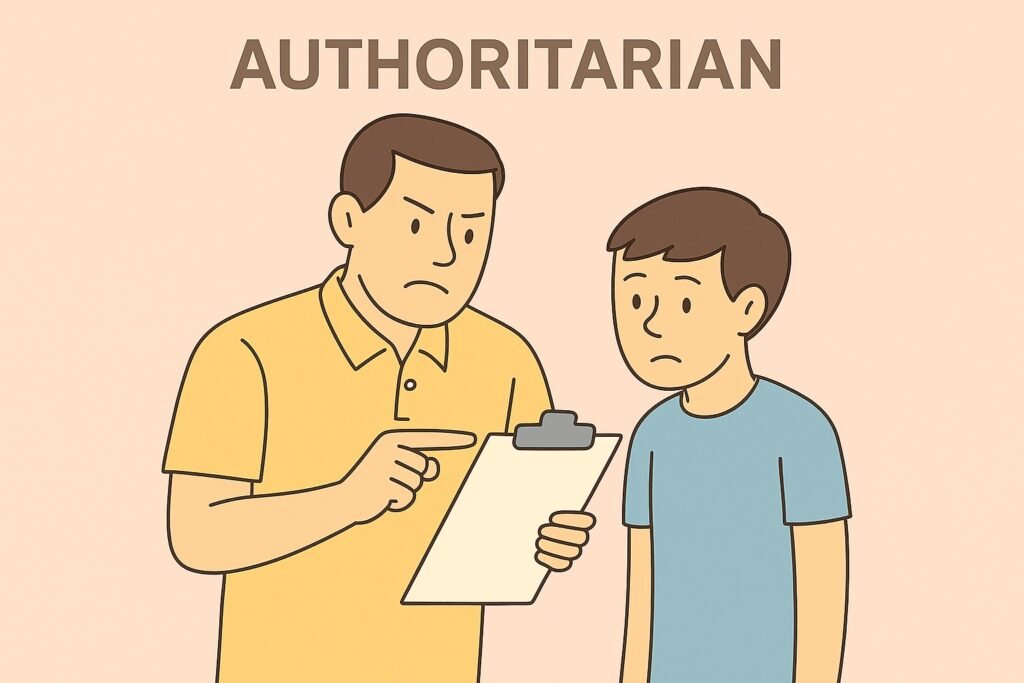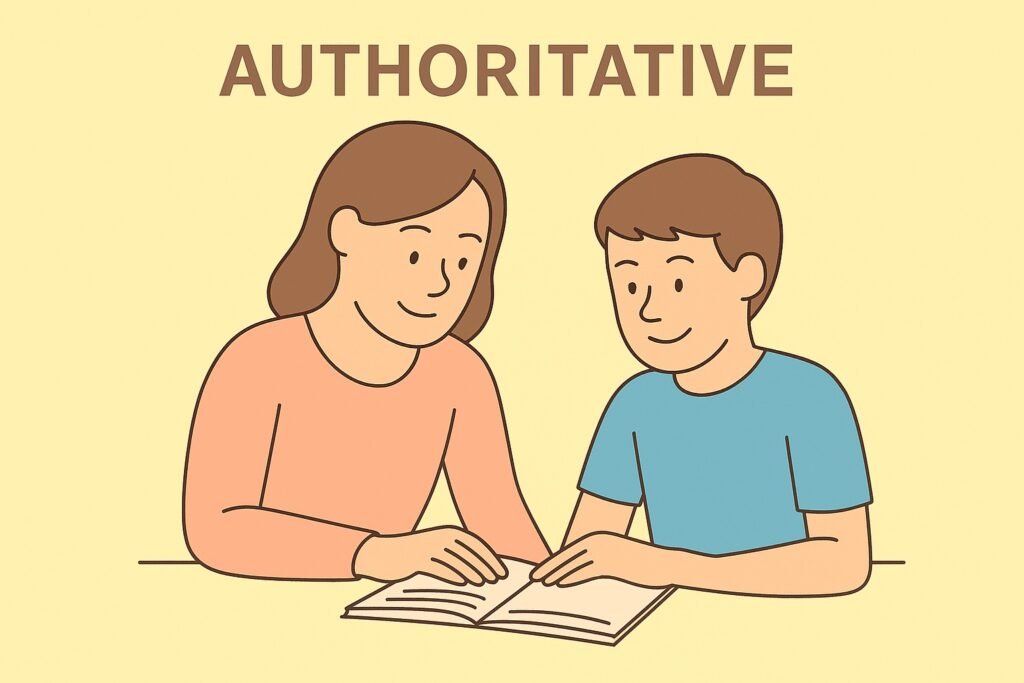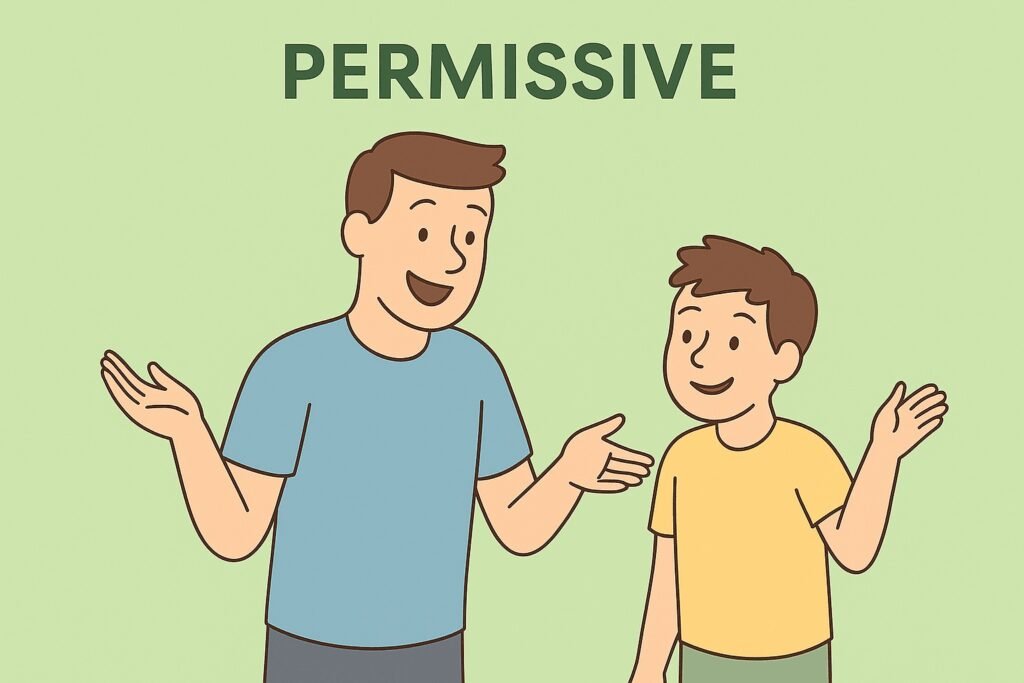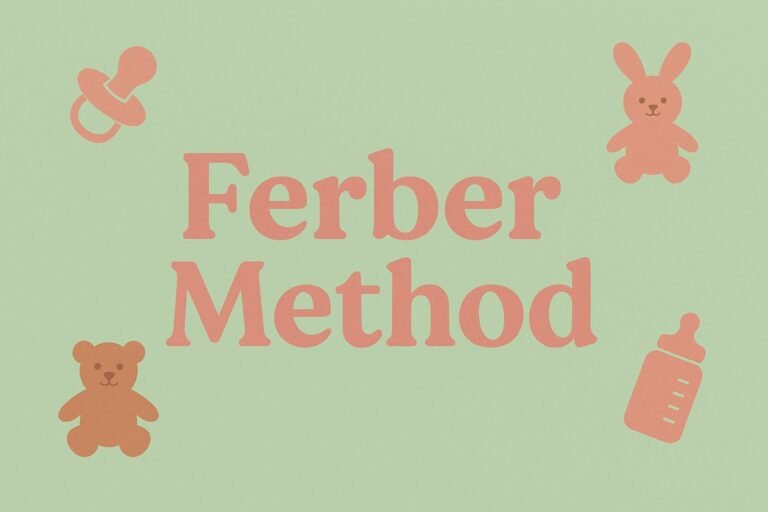As parents, we’re constantly making decisions that shape our children’s future. From how we respond to tantrums to the way we establish rules, our parenting styles influence who our children become. Understanding different parenting styles and their effects on child development can help you make more informed choices in your parenting journey.
In this article, I look at the 4 main types of parenting, provide specific examples of each one, explain their effect on your child’s present behavior and future development, and outline the main advantages and disadvantages of each approach. With this article, I hope to help you better understand how your actions and words construct your child as a person and adjust your habits and conduct to support your little one’s self-actualization and fulfillment in life.
Table of Contents
What Are the 4 Different Parenting Styles?
Parenting styles represent distinctive patterns of behaviors, attitudes, and strategies that parents use when raising their children. Because of their importance, they have been the subject of continuous interest by a number of famous psychologists and other scientists.
In the 1960s, developmental psychologist Diana Baumrind conducted extensive research at the University of California, Berkeley, identifying three main parenting styles based on two key dimensions: 1. Demandingness (control) and 2. Responsiveness (warmth). Later, researchers Eleanor Maccoby and John Martin added a fourth style to complete the framework we use today.
As the result of this development in the psychological framework, the four main parenting styles that we identify today include:
- Authoritarian parenting
- Authoritative parenting
- Permissive parenting
- Uninvolved (or neglectful) parenting
Each style has different characteristics and creates different outcomes for children
Let’s explore them in detail.
Authoritarian Parenting Style

Authoritarian parenting is characterized by high demands and low responsiveness on behalf of the parent. Parents who adopt this style establish strict rules for their children and expect immediate obedience without explanation of the reasons behind the need to comply with these rules.
Example
Imagine a scenario where a child receives a B on a test.
An authoritarian parent might respond: “This is unacceptable. You should have studied harder. No phone or friends this weekend, and I expect you to spend that time studying to improve your grade next time.”
In this example, the parent sets high expectations but offers no emotional support or recognition of the child’s efforts. The focus is purely on compliance and performance.
The Impact of Authoritarian Parenting on a Child
Children raised under authoritarian parenting often develop specific behavioral and emotional patterns. Research shows that this parenting style can significantly influence a child’s development in various ways.
In specific, these children typically become rule-followers who understand the importance of obedience. However, they may struggle with self-esteem issues and have difficulty making independent decisions. According to studies, children of authoritarian parents may display more aggressive behavior outside the home, possibly as an outlet for their frustrations that they cannot safely share and experience in the home environment.
In addition, these children often excel academically due to the high standards set by their parents but may struggle with social skills and emotional intelligence. They might become overly dependent on external validation and authority figures for guidance. Consequently, their objective success in life does not necessarily bring them the emotional satisfaction and sense of fulfillment that we all desire so much.
Pros and Cons of Authoritarian Parenting
Here are the main advantages of authoritarian parenting for children’s development:
- Children learn to follow rules and respect authority.
- The clear structure and expectations provide security that is needed by small children who are still shaping their own habits and behaviors.
- Children often perform well academically and career-wise.
- Behavior is usually well-controlled in public settings, eliminating public embarrassments.
However, there are significant drawbacks to this way of parenting to consider that include:
- Children may develop low self-esteem and poor self-confidence which prevents them from enjoying the success that they reap at school and later on.
- They might struggle with social relationships and empathy, including facing issues in starting their own family.
- Creative thinking and problem-solving, which are critical for success in the current job market, skills may be underdeveloped.
- Rebellion can occur in adolescence as a response to strict control, so things can get out of hand later on in life.
In sum, the authoritarian approach may produce obedient, well-performing children but often at the cost of their emotional well-being and independence.
Authoritative Parenting Style

Authoritative parenting combines high demands with high responsiveness. Parents who adopt this approach set clear rules and expectations for their children while providing them with much needed warmth, support, and open communication.
Example
Let’s revisit the scenario of a child receiving a B on a test.
An authoritative parent might say: “I see you got a B on your test. I know you’ve been working hard, but it seems like you may have struggled with some concepts. Would you like to talk about what was challenging? We can figure out how to approach it differently next time so you can feel more confident.”
This parent acknowledges the child’s efforts, offers emotional support, maintains expectations for improvement, and collaborates with the child on a solution.
The Impact of Authoritative Parenting on a Child
According to research, authoritative parenting tends to produce the most positive outcomes for children across various developmental manners.
Children raised by authoritative parents typically develop strong self-regulation skills and emotional intelligence. They learn to navigate social situations effectively and develop secure attachments. These children are more likely to become independent thinkers who can make good decisions while respecting the rules and boundaries set by society.
Studies indicate that children of authoritative parents generally have higher self-esteem, better academic performance, and fewer behavioral problems than their peers. They develop intrinsic motivation rather than relying on external rewards or punishments to guide their behavior.
Pros and Cons of Authoritative Parenting
The benefits of authoritative parenting are extensive, including:
- Children develop strong self-esteem and confidence which are important in all aspects of life.
- They learn both independence and responsibility.
- Strong communication skills and emotional intelligence are fostered from a young age.
- Academic performance and social competence are enhanced.
The drawbacks of authoritative parenting are relatively few, comprising:
- This parenting style requires more time and emotional energy from parents.
- Consistency can be challenging to maintain.
- The approach might need to be adapted for children with certain temperaments.
- Cultural expectations, especially in more authoritarian and patriarchal societies, sometimes conflict with this approach.
Nowadays, for the many advantages that it offers, authoritative parenting is widely considered the gold standard for raising well-adjusted, successful children.
Permissive Parenting Style

Permissive parenting is characterized by low demands and high responsiveness. Parents who practice this approach are nurturing and loving but provide few guidelines and rules for their children.
Example
If a child receives a B on a test, a permissive parent might respond: “Don’t worry about it! Tests aren’t everything. You’re smart and special no matter what grade you get. Would you like to go get ice cream to make you feel better?”
This parent offers comfort and emotional support but avoids addressing performance expectations or providing guidance for improvement.
The Impact of Permissive Parenting on a Child
Children raised by permissive parents often face unique challenges in their development.
Without consistent boundaries, these children may struggle with self-discipline and self-regulation. They often have difficulty following rules in school and other structured environments later on in life. Research suggests that children of permissive parents may be more impulsive and struggle with emotional control.
These children typically have good self-esteem and creative thinking skills but may lack the resilience needed to handle challenges and disappointments. They might also develop entitled attitudes due to the limited expectations placed on them by their parents.
Pros and Cons of Permissive Parenting
The advantages of permissive parenting include:
- Children feel loved and accepted unconditionally.
- Creativity and self-expression are encouraged.
- Strong emotional bonds typically form between the parent and the child.
- Children develop independence in their thinking.
The disadvantages, however, are significant, including:
- Children may lack self-discipline and responsibility, which can lead to a series of negative impacts in life.
- Academic performance often suffers without a stable structure at home and clear expectations from the parents.
- Social relationships may be challenging due to poor boundaries established at home.
- Entitled attitudes can develop without appropriate limits.
In other words, while permissive parenting creates a loving environment, the lack of structure often leaves children ill-equipped for life’s challenges.
Uninvolved Parenting Style

Also referred to as neglectful parenting, the uninvolved style is characterized by low demands and low responsiveness. These parents provide little guidance, nurturing, or attention to their children’s needs.
Example
If a child receives a B on a test, an uninvolved parent might barely acknowledge it: “Oh, you got your test back? I’m busy right now,” or might not even look at the test at all.
In this scenario, the parent shows minimal interest in the child’s academic performance and offers neither emotional support nor guidance.
The Impact of Uninvolved Parenting on a Child
Uninvolved parenting typically has the most detrimental effects on children’s emotional and behavioral development compared to other parenting styles.
Children raised by uninvolved parents often struggle with attachment issues and may have difficulty forming healthy relationships. They frequently develop low self-esteem and may exhibit behavioral problems as they seek attention in negative ways. Research indicates that these children are at higher risk for mental health issues, substance abuse, and delinquent behavior.
Children who get raised under the neglectful parenting method often develop a sense of self-reliance out of necessity, but this independence comes at the cost of emotional security and proper guidance. Academic performance typically suffers, and these children may feel they must fend for themselves in various aspects of life.
Pros and Cons of Uninvolved Parenting
There are very few benefits to uninvolved parenting, but some potential aspects include:
- Children may develop self-sufficiency earlier than peers.
- They learn to solve problems independently.
- Less parental interference might encourage autonomy.
- Children might develop resilience through adversity.
The significant drawbacks of this parenting style include:
- Attachment and trust issues often develop.
- Emotional and behavioral problems are common.
- Academic performance is generally subpar.
- Children face a higher risk of delinquency and substance abuse.
Generally speaking, uninvolved parenting leads to negative outcomes for children and should be avoided whenever possible.
What Other Parenting Styles Are There?
Beyond the 4 classic parenting styles, researchers and parenting experts have identified several other approaches to raising children:
- Helicopter Parenting: This covers parents who are extremely involved in their children’s lives, often constantly intervening in all decisions and activities in an attempt to prevent failures or challenges. These parents hover over their kids like helicopters, constantly monitoring and directing their children’s life.
- Free-Range Parenting: This approach emphasizes children’s independence and ability to function with minimal parental supervision. Free-range parents believe in developing self-reliance through freedom and natural consequences, which might make them look a bit distant and unengaged.
- Gentle Parenting: This nurturing approach focuses on empathy, respect, understanding, and boundaries. It prioritizes connection over correction and validating children’s emotions while maintaining clear limits. Gentle parenting emphasizes collaborative problem-solving rather than punishment and views misbehavior as a learning opportunity about meeting children’s underlying needs.
- Attachment Parenting: Focused on developing secure emotional bonds, this style stresses physical closeness, responsiveness to the child’s needs, and consistent nurturing. Practices often include extended breastfeeding, co-sleeping, and baby-wearing.
- Tiger Parenting: Popularized by Amy Chua’s book “Battle Hymn of the Tiger Mother,’ this demanding style emphasizes academic excellence, skill mastery, and strict discipline. Tiger parents set extremely high expectations and may limit social activities in favor of achievement-oriented pursuits.
- Positive Parenting: This approach focuses on mutual respect, positive reinforcement, and effective communication. Positive parents emphasize teaching over punishment and building strong relationships with their children.
- Conscious Parenting: Emphasizing mindfulness and self-awareness, this style encourages parents to understand their own emotional triggers and patterns before responding to their children’s behaviors. The focus is on authentic connection rather than control.
- Slow Parenting: Parents typically choose this approach as a reaction to over-scheduled childhoods. This style advocates for a more relaxed, unhurried family life with plenty of free time and less emphasis on structured activities for children.
This multitude of approaches to raising a child shows that parenting styles are as diverse as parents themselves. They are often the product of the parent’s childhood and the parenting method that was applied to them in an attempt to either replicate their own parent’s behavior or completely depart from it.
How Parenting Styles Interact: When Two Parents Meet
When you have a partner or co-parent, understanding how your parenting styles interact becomes crucial for your child’s wellbeing. Your child experiences a blend of approaches that can create either harmony or confusion.
Research shows that children benefit most when parents present a unified front, even when their natural styles differ. For instance, a household where one parent is authoritative and the other is permissive can work well if both parents communicate effectively and collaboratively and find middle ground, for the benefit of their children.
Meanwhile, significant conflicts between parenting styles can lead to:
- Emotional confusion in children who must navigate different expectations from each parent
- Children playing parents against each other to get their way with things
- Inconsistent discipline that undermines both parents’ authority
- Increased family stress and tension
Common Parenting Style Combinations
While families can exhibit a wide range of possible combinations in approaches to raising a child, the most popular mixes include:
Complementary Combinations
- Authoritative + Authoritative: Creates the most stable environment
- Authoritative + Permissive: Can work if boundaries are clear
- Organized + Flexible: Provides both structure and adaptability
Challenging Combinations
- Authoritarian + Permissive: Establishes a “good cop/bad cop” dynamic
- Two Authoritarian Parents: May create excessive pressure
- Authoritarian + Uninvolved: Can confuse children about expectations
To create harmony when styles differ, you and your partner can try these strategies:
- Discuss your parenting philosophy regularly as the first step to creating a unified front
- Establish core values that you both agree on
- Support each other’s decisions in front of the children
- Create consistent rules that both parents commit to enforcing
- Acknowledge your partner’s strengths, both in private and in front of your children
- Seek compromise on major parenting decisions
Remember, what matters most isn’t having identical styles but working together as a team to provide consistent, loving guidance for your children.
What Is My Parenting Style?
Understanding your natural parenting tendencies is a crucial step towards becoming a more effective parent. You need to be fully aware of how you treat your child and behave with them and how this impacts their development in order to make a conscious decision to change your approach for better outcomes, if needed.
You can start by reflecting on your approach by considering the following questions:
- How do you typically respond when your child misbehaves?
- Do you explain the reasoning behind rules or do you rather expect compliance without explanation?
- How comfortable are you with your child’s negative emotions and how do you show your attitude?
- Do you prioritize obedience or independence?
- How much supervision do you believe children need and how is this reflected in your specific actions?
- What are your expectations regarding your child’s achievement and performance, at school and socially?
- How often do you spend quality time connecting with your child?
- Do you allow natural consequences or intervene to protect your child from failure?
Your answers to these questions can help identify your dominant parenting style. Remember that most parents don’t fit perfectly into one category – we often blend elements from different styles based on our personalities, cultural backgrounds, experiences with our own parents, and the specific needs of our children.
As for me, I’ve found that my parenting style has evolved over my 12 years of mothering my two wonderful boys. I tend to blend authoritative parenting because my children have spent so much time with me alone, making me their ultimate source of truth and guidance. But I also have permissive tendencies. Sometimes I get a bit too soft because I feel the world can be harsh enough, and I try to compensate by creating a gentler home environment.
I suppose you could say I’m an “authoritative parent with occasional permissive weekends!” It’s not perfect, but we’re all doing our best, right?
How Can I Adjust My Parenting Style to Benefit My Child?
Based on research, authoritative parenting, i.e., combining warmth with appropriate expectations, produces the best outcomes for most children. Of course, many differences are possible because of our children’s personalities, experiences, environments, and a lot of other factors.
If you’d like to move toward a more balanced approach, you can consider these practical strategies:
- Establish clear boundaries while explaining the reasoning behind them: Instead of saying “Because I said so,” try something like “We don’t hit because it hurts others, and we want to treat people with kindness.”
- Employ active listening: When your child talks to you, provide them with your full attention. Drop for a minute everything else that you might be busy with and provide your child with your undivided attention; they deserve this. Validate their feelings even when you don’t agree with their behavior.
- Offer choices within limits: Rather than saying “Put on your jacket,” try “It’s cold outside. Would you like to wear your blue jacket or your red sweater?”
- Focus on positive reinforcement: Catch your child being good and acknowledge it. Specific praise that’s based on a particular action is more effective than general compliments as it creates the right incentives to seek more of the behavior that resulted in praise.
- Develop natural and logical consequences instead of punitive measures: If your child doesn’t put away their bike, the natural consequence might be that it gets rained on or the logical consequence might be losing bike privileges for a day.
- Model the behavior you want to see: Children learn more from what we do than what we say. Show respect, emotional regulation, and responsibility in your own actions.
- Adjust your approach based on your child’s temperament: Some children need more structure, while others thrive with more independence. Be flexible enough to meet your child’s specific needs which might change over time.
- Make time for connection: Establish regular one-on-one time with each child to strengthen your relationship and build trust.
- Practice self-care: It’s difficult to be a responsive, patient parent when you’re exhausted or stressed. Taking care of your own needs helps you be more present for your children.
- Be willing to apologize: When you make mistakes (and all parents do!), acknowledge them and apologize to your kid. This teaches your child accountability and shows that you respect them even though they are younger than you.
Remember that changing your parenting style is a journey, not an overnight transformation. Over time, small, consistent changes can make a significant difference in your child’s development and your relationship with them.
Disclosure: This post contains affiliate links. As an Amazon Associate, I earn from qualifying purchases. I may earn a commission if you click and make a purchase, at no extra cost to you.
5 Best Parenting Style Books
To prepare yourself to embark on the exciting, yet demanding journey of adapting your parenting style to the needs of your child, you may need some extra help from the experts in the field. Luckily, there are plenty of trustworthy books that provide the help that we – parents – need to become better versions of yourselves for the benefit of your children.
Here I’ve selected 5 of the most trusted resources that provide comprehensive guidance on implementing different parenting styles and understanding their impact on child development. Each offers unique insights that can help you on your parenting journey.
1. “How to Talk So Kids Will Listen & Listen So Kids Will Talk” by Adele Faber and Elaine Mazlish
“How to Talk So Kids Will Listen & Listen So Kids Will Talk” is a parenting classic that has been helping families communicate better for over 35 years. The authors provide practical strategies for connecting with children ages 2-12 through effective communication techniques. The book emphasizes narrative and metaphor to make concepts accessible and includes scripts for real-life situations.
What makes this book stand out is its focus on respectful communication that works for both parents and children. The Boston Globe calls it “The Parenting Bible,” and parents appreciate how the strategies can be applied even beyond the family setting. It teaches you how to validate emotions while maintaining boundaries, a key component of authoritative parenting.
2. “Positive Discipline” by Jane Nelsen
Created by developmental psychologist Jane Nelsen, “Positive Discipline” introduces this philosophy based on Alfred Adler’s work. It teaches parents how to be firm and kind simultaneously, helping children develop cooperation and self-discipline without losing dignity.
Dr. Nelsen’s unique approach lies in emphasizing mutual respect over punishment. She provides practical tools for setting limits effectively while building problem-solving skills in children. With experience as both a psychologist and mother of seven, Nelsen combines research-backed strategies with real-world applicability that benefits parents and children from toddlers to teenagers.
3. “Authoritative Parenting: Synthesizing Nurturance and Discipline for Optimal Child Development” by Robert E. Larzelere, Amanda Sheffield Morris, and Amanda W. Harrist
“Authoritative Parenting: Synthesizing Nurturance and Discipline for Optimal Child Development” is a scholarly compilation that directly addresses Diana Baumrind’s authoritative parenting style, combining decades of research into a comprehensive resource. The book examines three critical unresolved issues: mechanisms of effectiveness, cultural variations, and the bidirectional nature of parent-child influence.
Unlike typical parenting guides, this book integrates developmental and clinical psychology perspectives, making it invaluable for parents seeking evidence-based approaches. The editors collaborated directly with Diana Baumrind, ensuring authentic representation of her groundbreaking work. It’s the definitive resource for understanding the science behind authoritative parenting.
4. “The Whole-Brain Child” by Daniel J. Siegel and Tina Payne Bryson
“The Whole-Brain Child” offers an easy-to-digest explanation of the neuroscience behind children’s behavior and how the brain develops. Dr. Siegel, a Clinical Professor of Psychiatry at UCLA, and Dr. Bryson, a psychotherapist, explain why children have meltdowns and misbehave from a developmental perspective.
What sets this book apart from the ton of other literature on the topic of parenting styles is its ability to make complex neuroscience accessible to parents, helping them understand that misbehavior isn’t personal – it’s developmental. The authors provide practical strategies for helping children integrate their “upstairs” and “downstairs” brain functions, leading to better emotional regulation and decision-making skills.
5. “Peaceful Parent, Happy Kids” by Dr. Laura Markham
In “Peaceful Parent, Happy Kids“, Dr. Markham, one of the most respected parenting experts worldwide, focuses on connection-based parenting that avoids punishment while maintaining structure. The book provides a step-by-step guide to parenting with compassion and empathy, helping parents recognize and meet their children’s needs effectively.
These five books offer a comprehensive foundation for understanding and implementing effective parenting strategies. Whether you’re drawn to the practical communication techniques of Faber and Mazlish, the research-backed insights on authoritative parenting, or the neurological understanding provided by Siegel and Bryson, each resource offers valuable tools for your parenting journey.
Final Thoughts
Parenting styles significantly influence our children’s development as they affect everything from their self-esteem and academic achievement to their social skills and future relationships. While authoritative parenting is generally associated with the most positive outcomes, the “perfect” approach varies based on your child’s unique personality, your family values, and your cultural context.
The most important element of effective parenting isn’t adhering strictly to a particular style; it’s being responsive to your child’s changing needs while providing appropriate guidance. Parenting is both an art and a science, requiring flexibility, patience, and continuous learning.
As you go through your parenting journey, be kind to yourself. Perfection isn’t the goal; connection and growth are. By understanding different parenting styles and their impacts, you’re already taking an important step toward becoming the parent your child needs.
What’s your experience with different parenting styles? Have you found certain approaches work better with your children? Share your thoughts and experiences in the comments; we all learn from each other on this parenting adventure!







